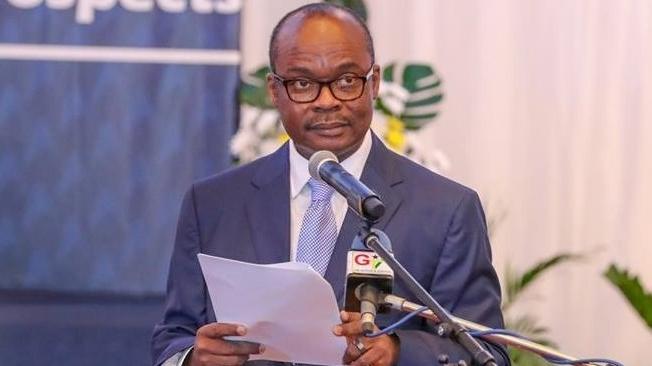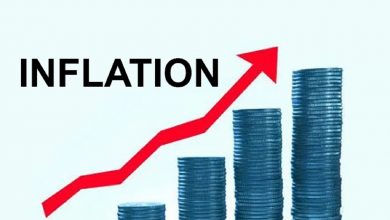Budget deficit financing hurts but unavoidable – BoG Governor admits

THE Bank of Ghana (BoG) has admitted that the continuous financing of the deficit by the central bank is hurting the economy but said it was the best available option under the current circumstances.
The Governor of BoG, Dr Ernest Addison, told the media last week that while the bank was aware that the action was also “sub-optimal,” it found it necessary to keep the government machinery running.
Dr Addison said in Accra that at a time when the government was unable to borrow from the external market and domestic auctions were also suffering shortfalls, it was only the central bank that could intervene to help save the situation.
Addressing the bank’s regular Monetary Policy Committee (MPC) press conferences in Accra, Dr Addison said it was also necessary to reduce capital outflows which had the tendency of worsening the cedi depreciation.
Dr Addison, however, said the committee was hopeful that the situation would change soon.
He,however, did not state the size of BoG’s exposure to the government through the deficit financing.
Policy Rate
At the press conference, Dr Addison announced the increment of the policy rate from 22 to 24.5 per cent.
He said the central bank raised the benchmark rate for interest rates by 250 basis points (bps) to help contain price pressures and slowdown the pace of the cedi depreciation.
The hike is the second highest in the year, coming after a 300bps increment in August which was also meant to ease inflation and slowdown the pace at which the cedi loses its value.
Inflation peaked at 33.9 per cent in September while the cedi lost about 37.5 per cent of its value to the United States (US) dollar as of September.
Expenditure Pressures
Dr Addison said the implementation of the budget was largely under control although revenues continued to lag behind target.
He said while expenditure had been broadly on target, revenue performance had been below expectations, complicating the fiscal policy implementation.
“Financing of the budget so far has predominantly been from the banking sector, with the central bank absorbing a larger share.
“Persistent uncovered auctions and portfolio reversals by non-resident investors continue to pose risks to financing of the budget, resulting in monetisation of the budget deficit by the central bank.
“The MPC recognises the fact that the current condition is sub-optimal and will be interim until agreements are reached on an International Monetary Fund (IMF)-supported programme,” Dr Addison said.
He added that the committee assessed that the engagement with the IMF had been positive and an early conclusion of the programme discussions would help re-anchor stability.
Price Pressures
On inflation, Dr Addison said inflation remained elevated and efforts to douse it must be prioritised.
“Inflation remains elevated and the balance of risks are on the upside.
“Although the forecasts are for monthly inflation to continue to slow down, the risks are on the upside, emanating largely from pass-through effects of the currency depreciation, the recent upward adjustment in utility tariffs, and the rising inflation expectations,” Dr Addison said.
He reassured the public that the MPC, which he chairs, remained committed to re-anchoring inflation expectations and returning to a disinflation path.
“Under the circumstances, the MPC decided to increase the Monetary Policy Rate by 250 basis points to 24.5 per cent,” he said.
Cedi Depreciation
The governor said the outlook for the local currency had improved, as a result of the inflow of foreign exchange in recent times.
He mentioned the recent disbursement of the US$750 million loan from Afrexim Bank, the signing of the syndicated cocoa loan of US$1.13 billion last week and the agreement with gold and oil companies to purchase the repatriated foreign exchange earnings.
He said the repatriated foreign exchange earnings were estimated at about US$83.9 million so far and would complement the cocoa and Afrexim Bank loans to help stabilise the exchange rate.
He said the country’s gross international reserves suffered a decline.
He said the reserves fell to US$6.6 billion, equivalent to 2.9 months of import cover for goods and services in September 2022.
That, he said compared with the December 2021 position of US$9.7 billion, equivalent to 4.3 months of import cover.
He said the net reserves, which excluded encumbered assets and petroleum funds, was estimated at US$2.7 billion as of September 2022.
Source: Graphic online




